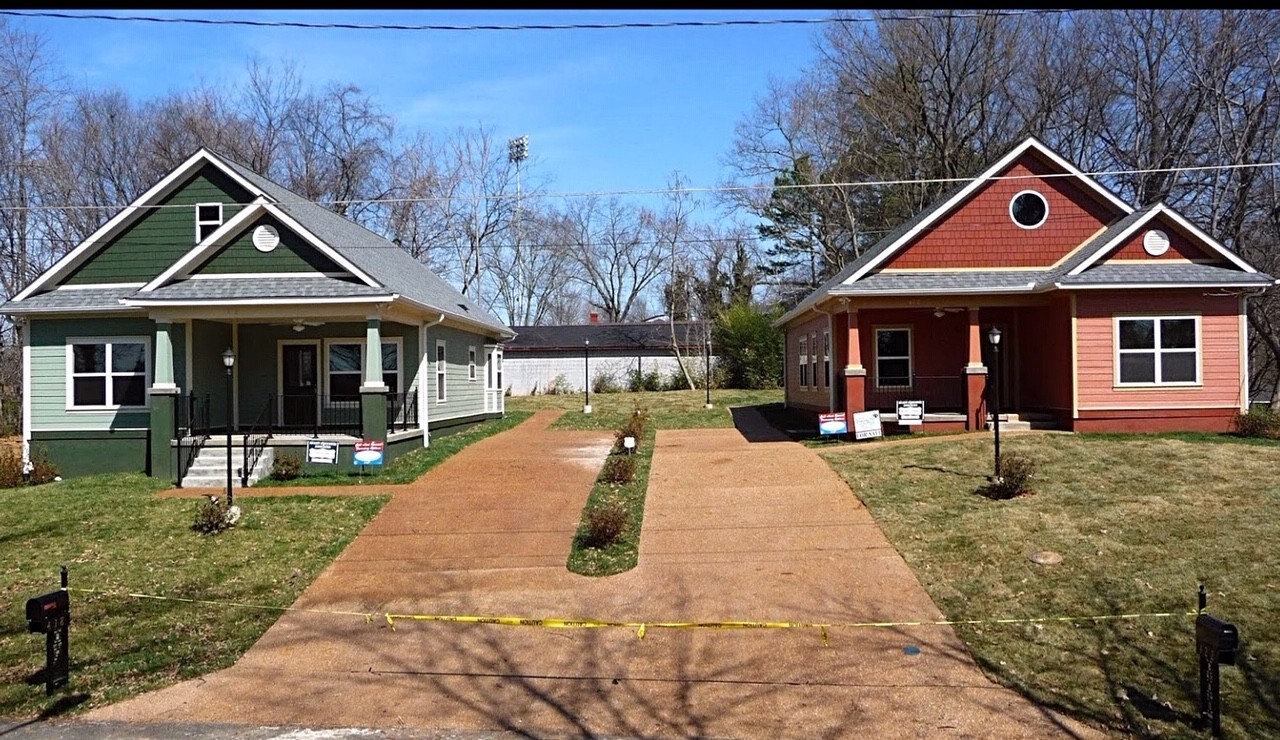Recode Knoxville harbors an unstated goal of increasing affordable housing. It seeks to accomplish that indirectly by adding density features like expanding multi-family zones and allowing ADUs in every residential zone. Shouldn’t such a goal be first vetted by the city council? Addressed head-on. With input from area housing experts.
Affordable housing. We need to know:
- What is it?
- How can Knoxville best address this shortage?
- What tools are at our disposal?
Background. We’ve previously written about the broad-brush designation of RN-4 zones within a quarter-mile of bus routes, and by authorizing ADUs as a permitted accessory use in every residential zone, without requiring on-site owner presence, and by increasing multi-use and multi-family housing. We need to examine the extent and root causes of any shortage of affordable housing before adopting the supposed cure.

Income: According to a 2017 MPC study, the median family income for Knoxville is $52,230. Average home cost has risen to $168k, and the average rental price is $800 per month. (See MPC.org under “Data,” Technical Report, Workforce Housing). Some families do not earn that amount. Nonetheless, wages are finally growing, as the economy grows, after remaining relatively stagnant during the preceding decade.
Cost of living: On the flip side, the cost of living seems to be less expensive in Knoxville than in several other major Tennessee cities: roughly 20 percent higher in Nashville and Chattanooga, 13 percent higher in Columbia/Murfreesboro, 8 percent higher in Morristown, and only a minor difference in Jackson and Memphis. The source of any stats matters.
Defined terms: HUD regulations say “affordable housing cost” should not consume more than 30 percent of a family’s monthly income (roughly $1,300/month for the above median wage; but only $625/month at the $25k income level). The 30 percent rule covers rent/mortgage, insurance, taxes and utilities. In addition, HUD guidelines say no more than 15 percent of income should be allocated to transportation ($650/month; or $312/month for the sample wages above).
MPC maps show the lowest wage areas are located in east and south Knoxville, but the better paying jobs are mostly west and in center city. Newer housing seems to be concentrated in the north and west parts of town.
Finally, while new housing starts decreased in the decade since the mortgage crash of 2008, they have recently started to climb back up. Of course, inflation affects the price of construction. What to do?
Recode’s Assumption. Recode seeks to foster lower-cost housing along bus transportation corridors to, hopefully, save some of that 15 percent of wages, so it can be spent on other needs. While there is some logic to that idea, other statistics show that nearly 93 percent of Knox County residents commute to work by car. Even if a bus might get some those folks to-and-from work, most families still need a car for myriad other daily/weekly trips. Neither wishful thinking nor creative zoning will change that choice. For most folks, a car represents mobility and personal freedom.
Direct Housing Options. We need to explore how to solve the housing problem directly. What tools do we have? Here are some ideas:
- Housing Stock. Maintain the quality of existing affordable housing stock or replace it. We have already done some of that in Knoxville. Witness the earlier Hope VI project in Lonsdale, and the current 4-phase replacement of Walter P. Taylor homes at Five Points, with some 160 units to come online in the next two years.
- Operating Costs. Continue programs that help insulate and renovate older houses to reduce homeowner operating costs. The city runs a Homemaker Program to get individual houses back in use. We need to do more of that, and to buy or take by eminent domain more boarded-up or unused houses out east, and renovate and help get them occupied by families. Make it a higher budget priority.
- Grants/Incentives. Tap into federal and state housing grants and funds, like the Tennessee Housing Trust Fund, or provide Investment Tax Credits to incentivize developers to build more lower cost housing. Dig deeper.
- Buyer Support. Appropriate or seek funding for down payment assistance to get more working folks into their own homes. Couple that with homeowner education programs to increase success rates.
- Create a Fund. Solicit private contributions to create a Housing Fund or Land Bank to use for building more affordable housing units.
- Fund More Construction. Boost city funding for efficient housing construction by entities like Habitat for Humanity, Home Source and other builders of affordable housing.
- Loan Facilitation. Experiment with shared equity where, for example, land cost is covered outside the mortgaged price of the house, to facilitate more home equity loans. “Evergreen” any capital returned from later resales of such houses.
- Architects. Create several ready-to-build house plans that can easily be permitted and built, to cut delay and front-end costs for affordable housing. Engage the AIA, the East Tennessee Community Design Center and the Home Builders Association.
- Harness Technology. Design pre-approved modular housing segments that can be factory-built and site-assembled to lower construction costs. It’s time for a modern Barber/catalog-style house.
Conclusion. In short, we need to harness our imagination to find direct solutions for affordable housing, and get working families into their own home. Ownership fosters pride and sense of community. Recode can reinforce that effort, but seems ill-suited to take the lead.
We don’t want to incentivize developers to tear down historic houses in places like 4th & Gill, Parkridge or Oakwood-Lincoln Park in order to build apartment buildings, just because Recode is too permissive.
Nick Della Volpe is an attorney and a former member of Knoxville City Council.

